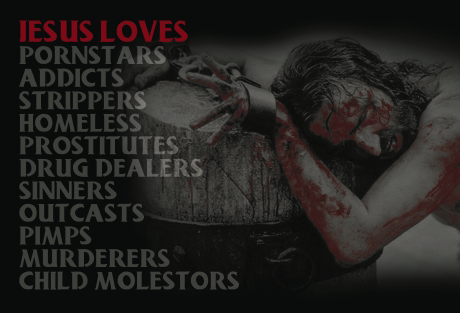Check out this Christmas Flash Mob. Absolutely beautiful. And what a prophetic statement to do this in the middle of the halls of consumerism – a shopping mall at Christmas.
Page 20 of 53
 Another great article in today’s Sydney Morning Herald. Slavery in 2012 is a reality. It didn’t end 200 years ago with Wilberforce or with Lincoln. It may have been outlawed then, but it still exists today.
Another great article in today’s Sydney Morning Herald. Slavery in 2012 is a reality. It didn’t end 200 years ago with Wilberforce or with Lincoln. It may have been outlawed then, but it still exists today.
Two weeks ago was Abolitionist Sunday, and as we celebrate Christmas, how much of what we buy has been produced by slave labour?
Campaigns like World Vision’s Don’t Trade Lives, as well as Stop the Traffik, are very worthwhile ones to get involved in if you want to see what you can do to make a difference.
Interesting article in today’s Sydney Morning Herald about the lack of passion in today’s Gen Y, written by a Gen Y. If you’re a Gen Y, what do you think? Do you agree with the author’s views?
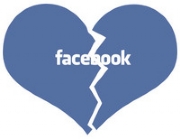 A typically well-thought-out and humble post by Simon Moyle on his reasons for quitting Facebook. Some of his thoughts are exactly those I have wrestled with at times over the years. Here are some of his thoughts that resonate with me:
A typically well-thought-out and humble post by Simon Moyle on his reasons for quitting Facebook. Some of his thoughts are exactly those I have wrestled with at times over the years. Here are some of his thoughts that resonate with me:
- When it begins to feel like a burden and is liberating to stop…that’s a pretty good indication right there that something’s been wrong.
- What does it mean when the new ‘marginalised’ means those not on Facebook?
- We have more information than ever but I wonder if we are more informed?
- Do we give information enough time to do its inward formation work on us or is it just washing over us because of the sheer volume? Or do we listen only to that which reinforces our existing beliefs?
- What are the lines between information sharing, boasting, and straight out propaganda? Where’s the line between “letting your light shine before others” and not “practising your piety before others in order to be seen by them”? I’m not sure I know anymore. Does anyone even care?
- it’s the question of whose desires ‘run’ me…I’m glad my posts have been valued, but I don’t think I should allow others’ desires to run mine. There’s only one Other whose desires I want to run me, and if I spend more time listening to the louder voices instead of the still small one I’m going to have a hard time being ‘run’ by the latter.
- [Getting off Facebook is] less “efficient” in terms of reaching fewer people in a smaller geographical area, but then efficiency is not a gospel concept.
I agree with most of Simon’s post, though I’m not sure I agree with all of it. That is something I will have to think through. Or perhaps it’s something I don’t want to face. What I am sure about though is that I definitely agree with his points that I have quoted above.
I have written a number of posts (here, here and here) about the impact of Facebook on human identity and relationships, and challenged by someone like Simon who doesn’t just write about it, but as usual, puts it into action.
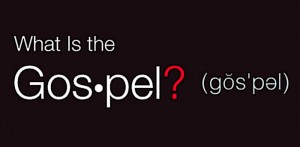 Rowland Croucher recently had a piece on his website called The Gospel Question. It is from a Bible study that Rowland runs at his Wednesday Koinonia group. Much of what is said reflects my recent pieces on ‘What is the Gospel?’. It starts off with the following:
Rowland Croucher recently had a piece on his website called The Gospel Question. It is from a Bible study that Rowland runs at his Wednesday Koinonia group. Much of what is said reflects my recent pieces on ‘What is the Gospel?’. It starts off with the following:
I suspect that many of us resonate with McLaren’s re-interpretation of what constitutes the Gospel – that in fact Jesus was announcing Good news” “the Kingdom of God is at hand!” Like many I have grown up with the epistle to the Romans serving as “our theological headquarters.” It was refreshing to read someone who, like many of us, would like to see the Gospels and the stories of Jesus become more primary in our understanding of life and faith.
Read the rest of this great study here.
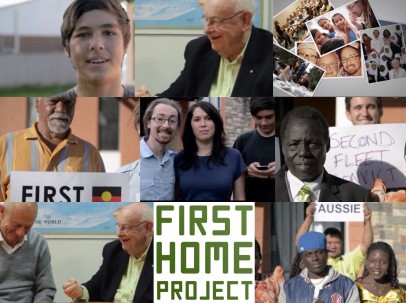 “‘Where is home? Where is my home?’ I hear my spirit cry” – Midnight Oil, Home
“‘Where is home? Where is my home?’ I hear my spirit cry” – Midnight Oil, Home
“Still gotta let you know, a house doesn’t make a home” – U2, Sometimes You Can’t Make It On Your Own
Every human needs a sense of place. Everyone needs a sense of belonging. We need a place we can call home. That’s why the issue of land rights is so important for Australia’s indigenous people. It goes right to the core of their identity. The land is about who they are. It’s also why children in foster care are so disadvantaged. From the first years of their life they are moved around from place to place, and they may even receive lots of love. But the more they are shunted around, the more they will have building up inside them the nagging question, ‘where do I belong?’ This question nags away at their fragile souls, and it’s no wonder so many become so restless in so many ways later in life.
Bono’s profound statement in the line above about a house not necessarily making a home strikes at the heart of identity. We need a safe place in our lives, a place of refuge, a place we can come to and know it’s ok. That’s why Australia’s treatment of asylum seekers is just more and more shameful. It speaks volumes that the Gillard Government’s decision this week to excise the Australian mainland from the migration zone didn’t receive howls of protest from the Opposition, because they totally agree with it.
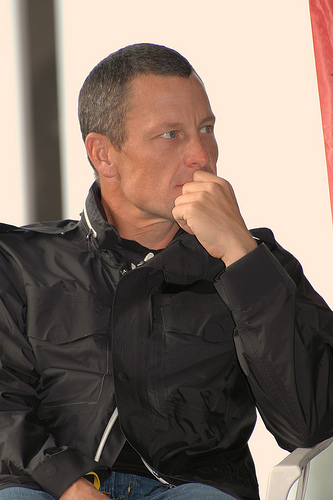 Excellent piece here from my friend and colleague David Wilson on the fallout of the Lance Armstrong affair. Reminds me of what Alexander Solzhenitsyn once said:
Excellent piece here from my friend and colleague David Wilson on the fallout of the Lance Armstrong affair. Reminds me of what Alexander Solzhenitsyn once said:
“Gradually it was disclosed to me that the line separating good and evil passes not through states, nor between classes, nor between political parties either — but right through every human heart — and through all human hearts. This line shifts. Inside us, it oscillates with the years. And even within hearts overwhelmed by evil, one small bridgehead of good is retained. And even in the best of all hearts, there remains … an un-uprooted small corner of evil.”
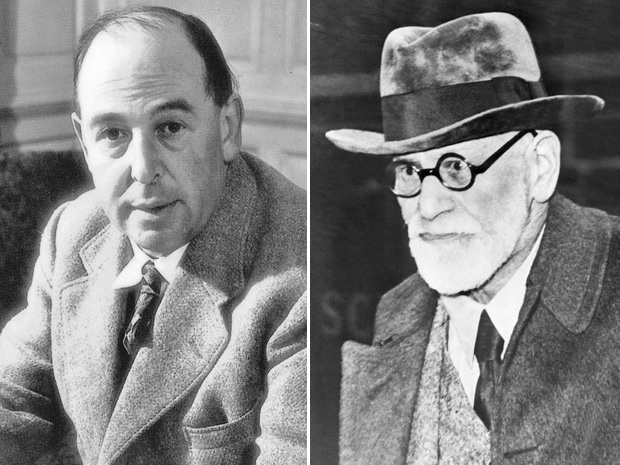
Armand Nicholi, in his book, The Question of God, brings to life an imaginary debate between two of the great minds of the 20th century, Sigmund Freud and C.S. Lewis. Here is what they both say about ethics and morality:
“Freud, however, asserts that ethics and morals come from human need and experience. The idea of a universal moral law as proposed by philosophers is “in conflict with reason.” He writes that “ethics are not based on a moral world order but on the inescapable exigencies of human cohabitation.” In other words, our moral code comes from what humans find to be useful and expedient. It is ironic that Lewis contrasted ethics with traffic laws; Freud wrote that “ethics are a kind of highway code for traffic among mankind.” That is, they change with time and culture.
…
Lewis points out that although the moral law does not change over time or from culture to culture, the sensitivity to the law, and how a culture or an individual expresses the law, may vary. For example, the German nation under the Nazi regime obviously ignored the law and practiced a morality the rest of the world considered abominable. Lewis claims that when we assert that the moral ideas of one culture are better than those of another, we are using the moral law to make that judgment. “The moment you say that one set of moral ideas can be better than another,” Lewis writes “you are, in fact, measuring them both by a standard, saying that one of them conforms to that standard more nearly than the other . . . the standard that measures two things is something different from either. You are in fact comparing them both with some Real Morality, admitting there is such a thing as a real Right, independent of what people think, and that some people’s ideas get nearer to that real Right than others.” Lewis concludes that “if your moral ideas can be truer, and those of the Nazis less true, there must be something— some Real Morality— for them to be true about.”
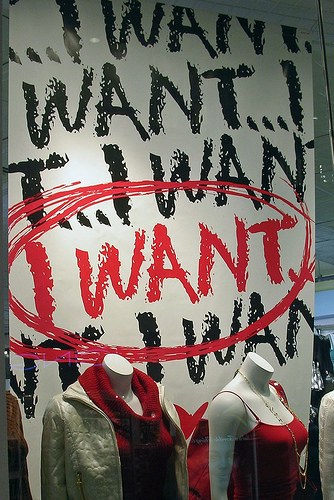 It’s not always good to get what you want. That is something we tell our kids when they’re young. But it is really one of those “do as I say not as I do” instructions. We live in a culture of want, not in the sense that we lack anything, but in the sense that we don’t lack anything yet we still want more.
It’s not always good to get what you want. That is something we tell our kids when they’re young. But it is really one of those “do as I say not as I do” instructions. We live in a culture of want, not in the sense that we lack anything, but in the sense that we don’t lack anything yet we still want more.
One of the things we learn as we grow in maturity is that it is healthy to sit with pain. Our culture teaches us to medicate pain. The main drivers of culture in our society by far are the media. Never has a statement been more true than the one that says “the medium is the message.” We are overwhelmed with about 3,000 advertisements every day, most of them being subtle. About 99% of those ads are deliberately aimed at fooling us into believing we have a void in our life that will be fixed if we buy this product. So we do.
Whether the pain we feel is real or not, we find it extremely difficult to just sit with it. We are actually given the message in different ways we are stupid and even psychologically unhealthy if we don’t do anything about the pain we feel. Don’t misunderstand this. This is not about being masochistic; it really is psychologically unhealthy to go looking for pain. But to be able to sit with pain when there is no need to medicate it builds resilience in the human spirit. The lie we believe is that if we deny ourselves a certain pleasure to medicate our pain, we are missing out. But it is just that: a lie.
